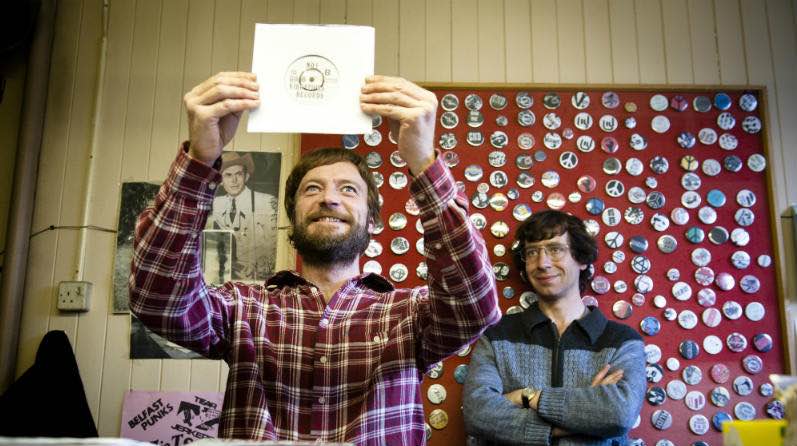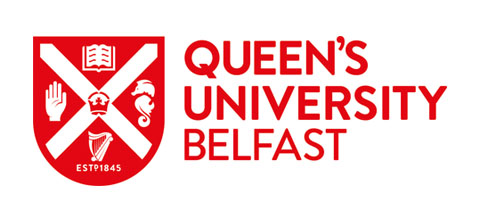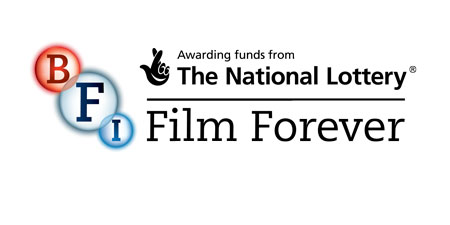Our City on Celluloid: Good Vibrations
08 February 2022
LUMI programmer Fionntán Macdonald returns with the next installment of Our City on Celluloid, this time looking at Good Vibrations.

Positive representations of the Troubles era are hard to come by (naturally) but Good Vibrations (2012) bucks that morbid trend. A feel good biopic that captures a bright moment within deep darkness, it is an atypical entry in this series in content but especially, and refreshingly, in tone.
Entirely unafraid of courting politics, Good Vibrations still never focuses on it. Rather the Troubles are the unfortunate setting of a distinctly personal story about music, memory and community in metamorphosis, more concerned with sonic revolution than civil revolt. Local legend Terri Hooley (Richard Dormer) is the film’s central figure, and his role as Belfast’s ‘Godfather of Punk’ insights the narrative without entirely defining it, an illustrious troupe of punk mavericks filling out the cast.
Hooley’s want is defined early on by a pair of insightful dialogue exchanges that serve to outline the film’s themes. The first, seamlessly transitioning between a musical meet-cute for Terri and his love interest Ruth (Jodie Whittaker) and his nostalgic reminiscence of his pre-conflict social circle.
Anarchists, socialists, feminists and the apolitical exchange ideas and toast pints in the old Harp Bar, an institution of social discourse on-screen and off, before the first shot is fired. But once this bullet leaves its chamber it shatters all previous ideas these characters held. Identity becomes binary in that moment: you’re a Catholic or a Protestant and if you consider yourself to be neither you become isolated from all.
Existing in this no-man’s land is Dormer’s version of Hooley who, through the lens of 2022, serves as an analogue for the current generation of secular youth. Dormer, a talented local actor best known for Game of Thrones, disappears into the role and captures the ecstatic passion the real life Hooley displayed in Shellshock Rock (1979). He vocalises attitudes increasingly prevalent among our young contemporaries who are less concerned with religious identity than their forbears but are still finely attuned to social issues.
Here the second significant exchange, between himself and a friend effected by paramilitary violence, comes into play. Engaging in recreational pharmaceuticals, Hooley begins to ponder the similarities between Belfast and Jamaica in the era: both with soldiers and gangs on the streets, murder daily. The difference?
“Jamaica has reggae. What have we got?”
The answer, we soon find out, is the resounding blare of youth in revolt: the punks.
This is where the film veers from straight biopic into something more insightful; a chronicle of a grass-roots movement that defied established norms socially, sonically and in enterprise. There’s a rebel soul in this film and the resultant product manages to capture much of the punk ethos.
While it doesn’t completely reject filmmaking norms and standards this film is entirely comfortable warping its form. A formalist approach has been taken by the filmmakers who tell much of their story with dramatic, exaggerated lighting cues and expressionist edits that often stray from standard continuity style. The film utilises such expressionist techniques with a deft hand, subtly playing with time and space to enhance the narrative while framing the ensuing events with temporal fluidity that connotes pleasant remembrances and revisited memory.
Archive footage is utilised skilfully to connote the context but Lisa Barros D’Sa, one half of the film’s directing pair, noting that Good Vibrations “is set in the context of the troubles but… it is really about people who were living in that world but don’t want to be defined by it.” In this way Hooley is the perfect subject; picking no sides but taking all comers, eschewing political prejudice in favour of a youthful alternative. “This place is beginning to remind me of somewhere” he says to Ruth as his movement finds a home: “itself.”
This film is a technical showcase hemmed by a directing team described by the Irish Times as, “the most important contemporary filmmakers working from Northern Ireland.” Certainly they executed their nostalgic vision of the punk era with much aplomb and that is its true charm, the sense of wistful reminiscence that seeps from every frame. Much as Hooley is presented as a passionate devotee to music, a “professional appreciator” of sorts, the filmmakers express a similar passion for this sub-culture.
Good Vibrations is not about one man but rather Belfast herself. It’s about history, culture, youth and their future, and especially about how music allowed Belfast to cope with conflict and become itself once again.
- written by LUMI programmer Fionntán Macdonald




